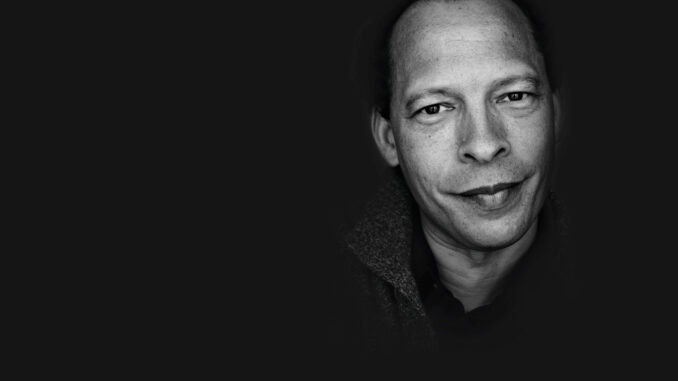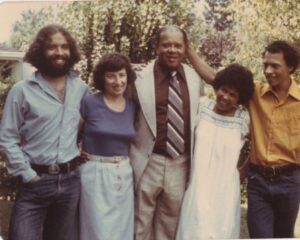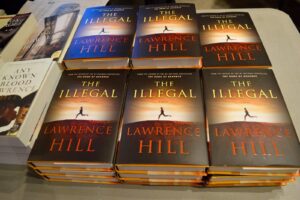
An Up-Close and Personal conversation on Race and Discovering Identity
To celebrate Black History Month, we are joined by Canadian Comedian, Broadcaster and Host Candy Palmater and an award-winning, A-list member of Canadian Literature Lawrence Hill on a moving conversation that sheds light on race, racial injustice and discovering his identity.

Hill was born to Donna Hill (mother) and Daniel Hill (father), who co-founded the Ontario Black History Society (OBHS) in 1978. Although the federal government did not formally acknowledge black History Month until the mid-nineties, Hill's parents saw an opportunity to celebrate the history of Black achievement and excellence through the OBHS as early as the nineteen-eighties, where Hill has been actively volunteering.
"They were very avid amateur historians, and they each wrote books about Black history in Canada, so they sort of infected me with this passionate thirst for more knowledgable Black history in our family, in our country and around the world," said Hill.
Hill comes from an academically active line of a family generation where his father held a Ph.D. in Sociology as his mother and where his great-grandfather, who was born just a step out of slavery, obtained a university education. Looking back on the history and path his parents choose being of an interracial couple, Hill says," if I told my dad when I was six or eight that I dreamed about being a writer, he would have done his best to shoot that down- their looking for doctors and lawyers and engineers and respectable things."
Growing up with high achieving and respected immigrant parents came with barriers and pressure that Hill had to endure and overcome in his early life to becoming a novelist. Hill takes us back in time growing up in Don Mills' suburbs, where he was surrounded pre-dominantly by White people. He talks about the change of moving from "a very black environment one minute and into an entirely White the next," where he mentions the state of feeling almost fraudulent in the wake of continually moving from one environment to the next in a breathe.
To make better sense of the world Hill was living in, he turned to creative writing to help navigate the transformative change and find his own identity and blackness.

"Writing and creative expressions sort of became a way to climb out of a crucible of ambiguity," Hill says. And through this way, Hill soon discovered and opened the door to find his identity.
Acquisition of Identity
Identity goes a long way into how an individual perceives themselves at a young age to an adult. Some people are born into a world where their identity is hoisted upon them, whether they like it or not.
"If you're a black person enslaved in the deep South, or enslaved in Canada for that matter, there'd be no doubt or dispute or question about your identity that was given to you as opposed to growing up and living in middle-class Canada," Hill mentions.
Although being born to a white mother and black father who spoke a lot about racial injustice, racism, slavery and segregation in Canada and other countries, Hill says, "They never spoke much about our identities."
Hill also pulls out a memory of his father referring to him and his siblings as "Zebras" when they were children. As it didn't help much in understanding exactly who they are, it was up to Hill to figure out how he would see himself in terms of what was possible and what wasn't and the identity he would shift towards to soon claim as his own.
Processive reading and writing, travelling, volunteering, and going to other black communities for Hill were fascinating approaches to finding and embedding himself in this world.

Be the first to comment